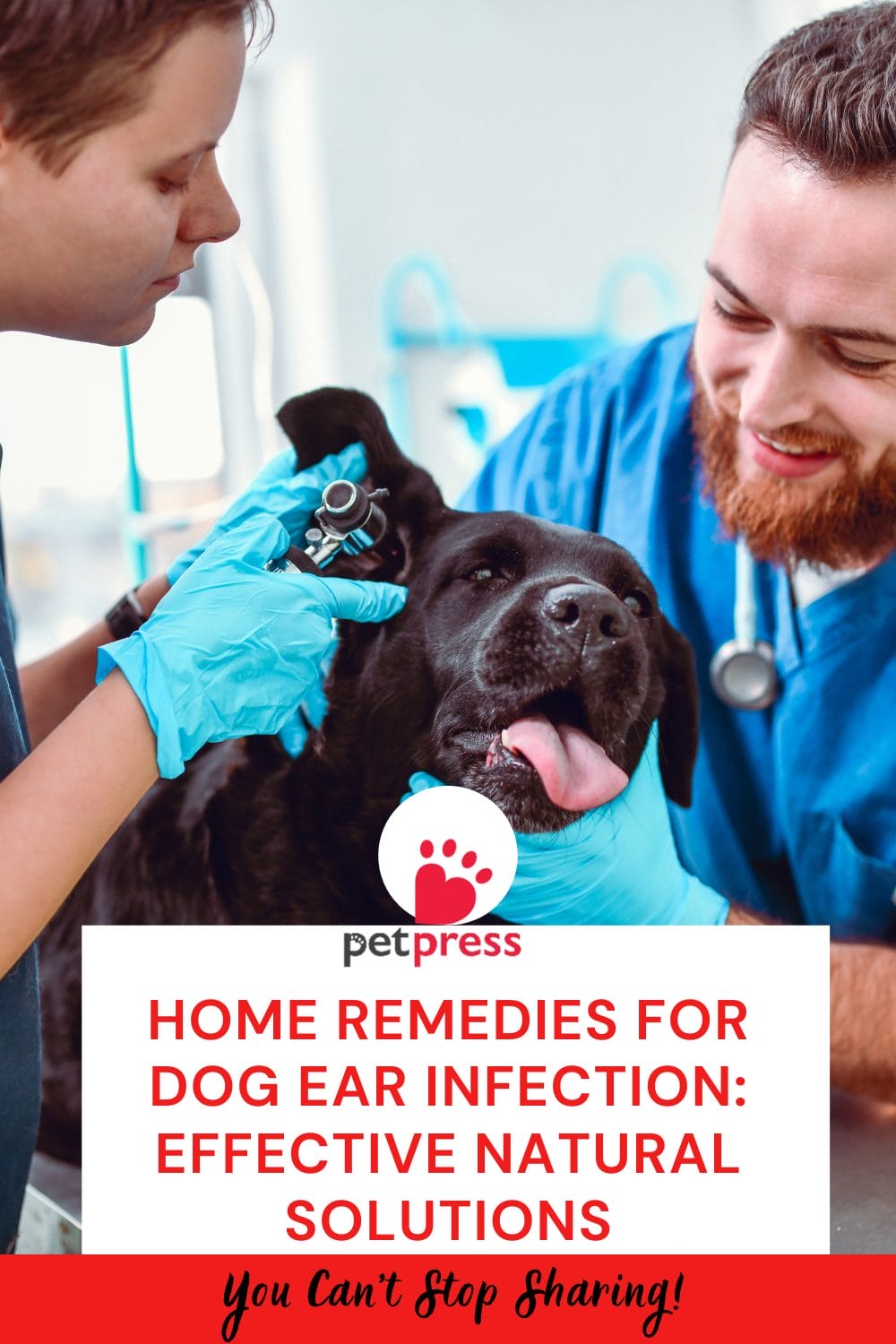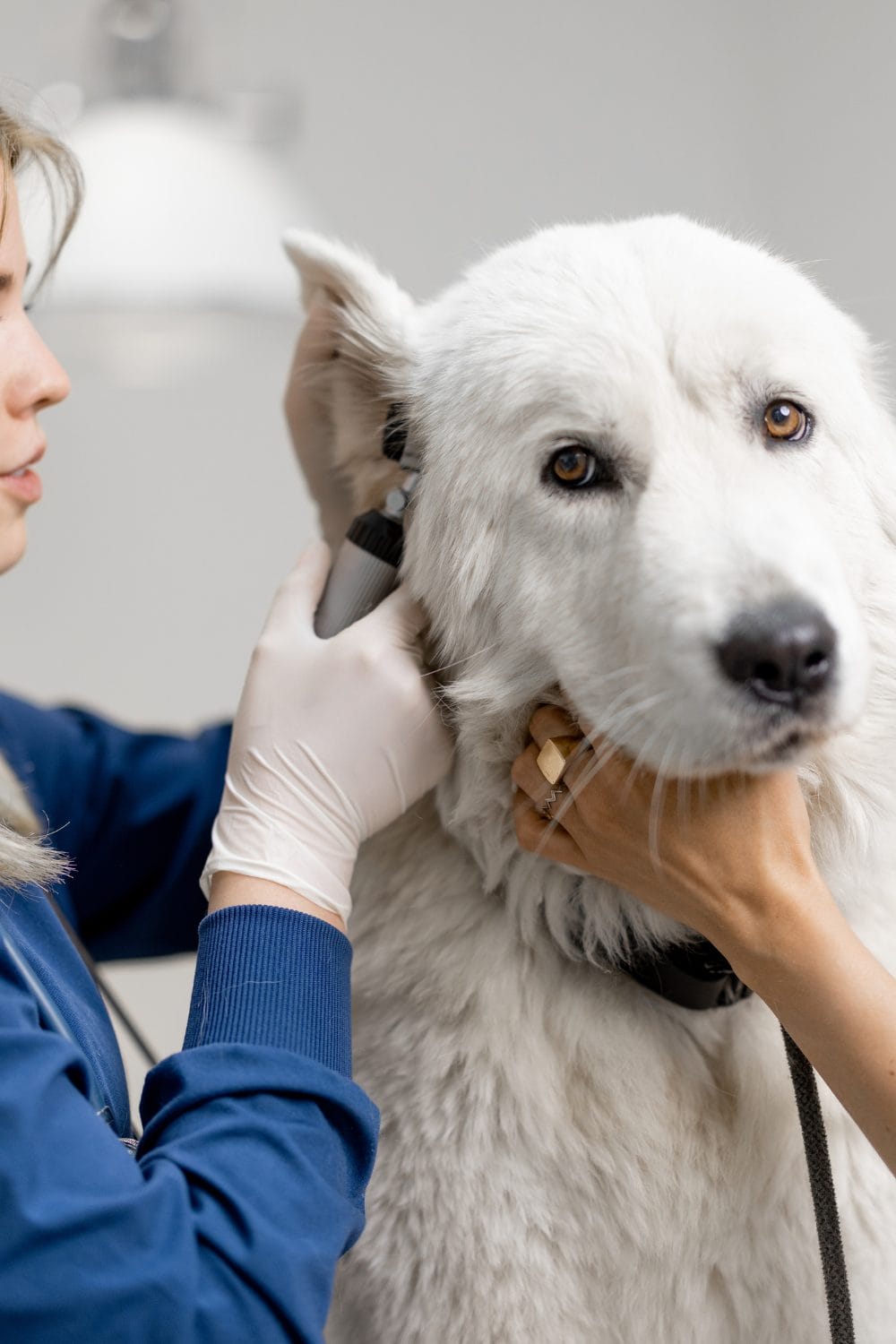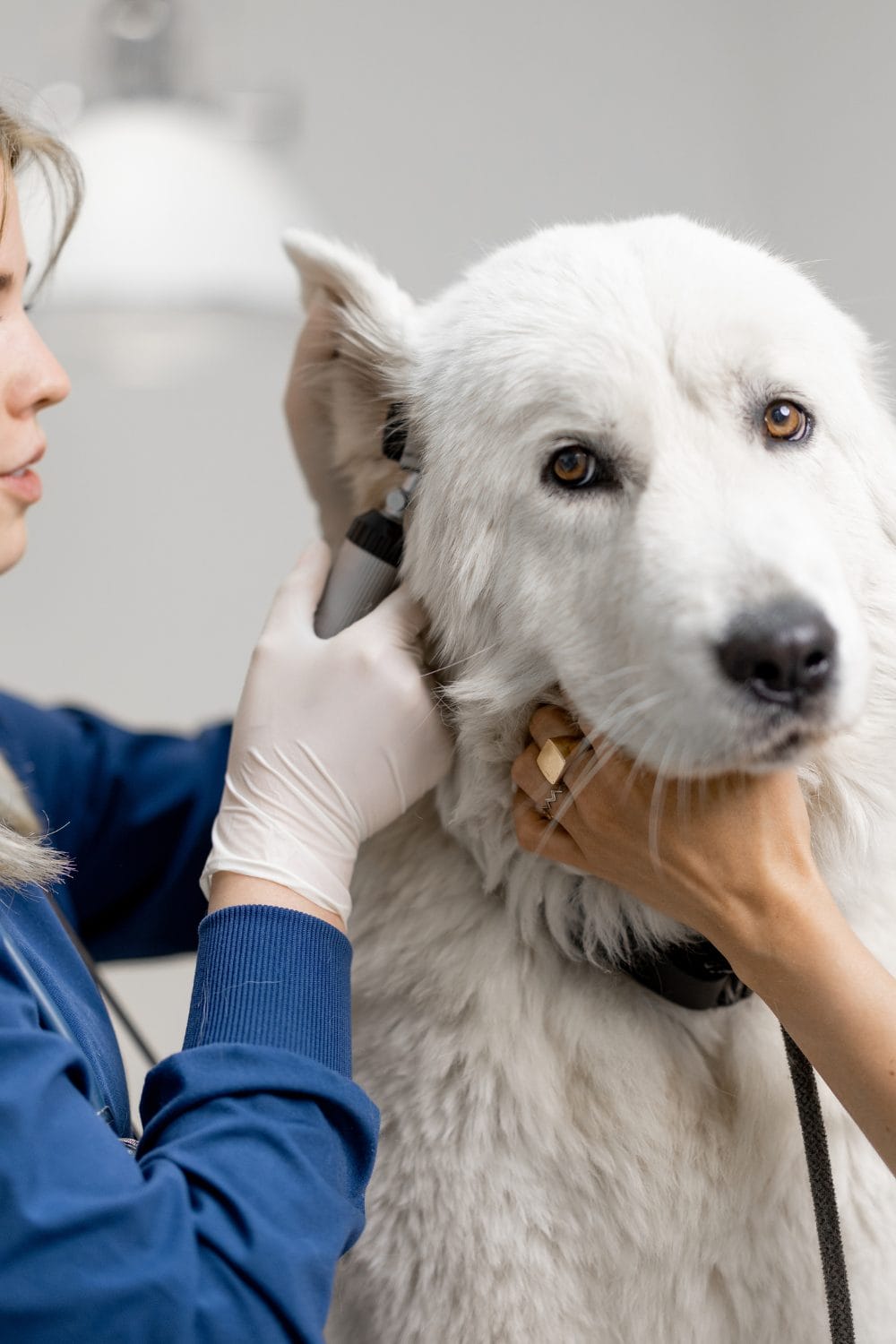
Home Remedies for Dog Ear Infection are a common concern by pet owners.
These infections can cause discomfort and pain for your canine companion, leading to symptoms such as itching, redness, and a foul odour.
While severe infections require veterinary attention, mild to moderate cases can often be managed at home using natural remedies.
This guide will explore why ear infections occur in dogs, the best home remedies, and important considerations to keep in mind during treatment.
Why Ear Infections in Dogs Happen
Ear infections in dogs are a common and troublesome issue, often caused by various factors that can lead to discomfort and serious health problems if left untreated.
Understanding why these infections occur is crucial for effective prevention and treatment.
Anatomy of the Dog’s Ear
Dogs have a unique ear structure, with a long, narrow ear canal that is more vertical than that of humans.
This shape can trap moisture and debris, creating an environment conducive to infections.
Allergies
Just like humans, dogs can suffer from allergies to food, pollen, dust mites, and more.
Allergies can cause inflammation and itching in the ears, leading to an increased risk of infection.
Moisture
Water can easily become trapped in a dog’s ear canal, especially in breeds with floppy ears or dogs that swim frequently.
This moisture can foster the growth of bacteria and yeast.
Ear Mites
These tiny parasites can infest a dog’s ears, causing irritation, inflammation, and a build-up of wax and debris.
Foreign Bodies
Grass seeds, dirt, and other foreign objects can become lodged in a dog’s ear, leading to irritation and infection.
Hormonal Imbalances
Conditions like hypothyroidism can affect the health of a dog’s skin and ears, making them more susceptible to infections.
Trauma
Scratching, head shaking, or injuries can damage the ear canal, creating an entry point for bacteria.

Home Remedies for Dog Ear Infection
While severe or chronic ear infections require veterinary attention, mild infections can often be managed at home with natural remedies.
Here are some effective home treatments:
Apple Cider Vinegar
This common household item has antibacterial and antifungal properties.
Mix equal parts of apple cider vinegar and water, and use a cotton ball to gently clean the outer ear. Be careful not to insert anything deep into the ear canal.
Coconut Oil
Known for its soothing and antimicrobial properties, coconut oil can be warmed and applied to the ear canal. It helps to reduce inflammation and fight infection.
Olive Oil
Olive oil can be used to clean out ear debris and wax. Warm the oil slightly and use a dropper to place a few drops in the ear.
Massage the base of the ear to help the oil spread and loosen the debris, then gently wipe out the ear.
Witch Hazel
This natural astringent can help to dry out excess moisture in the ear canal and soothe inflammation. Use a cotton ball to apply witch hazel to the outer ear.
Hydrogen Peroxide
A 3% hydrogen peroxide solution can be used to clean the ear and kill bacteria.
Use a dropper to place a few drops in the ear, let it bubble and fizz for a few minutes, then gently wipe out the ear with a clean cloth.
Tea Tree Oil
Diluted tea tree oil has antiseptic properties that can help combat ear infections.
Mix a few drops of tea tree oil with a carrier oil (such as coconut oil) and apply it to the outer ear. Avoid using it if your dog has a history of sensitivity to essential oils.
Calendula
Calendula has anti-inflammatory and antimicrobial properties.
Make a tea with calendula flowers and allow it to cool. Use the tea to clean the ear or add a few drops into the ear canal.
What to Keep in Mind?

While using home remedies, it’s important to keep the following tips in mind to ensure the safety and well-being of your dog:
- Consult Your Vet: Before starting any home treatment, it’s crucial to consult your veterinarian to confirm that your dog’s condition is safe to treat at home.
- Avoid Inserting Objects: Never insert anything into your dog’s ear canal. This can cause injury and make the wound worse.
- Monitor for Reactions: Keep an eye on your dog for any adverse reactions to home treatments, such as increased redness, swelling, or discomfort.
- Consistency: Follow through with the treatment consistently, but don’t overdo it. Cleaning too frequently can irritate the ear canal.
- Know When to Stop: If there’s no improvement within a few days, or if the condition worsens, seek veterinary help immediately.
Conclusion
Home Remedies for Dog Ear Infection can be uncomfortable and potentially serious if left untreated.
While home remedies can be effective for mild cases, it’s essential to know when professional veterinary care is needed.
By understanding the causes and applying appropriate treatments, you can help ensure your furry friend remains happy and healthy.
Always prioritize your pet’s well-being and consult your veterinarian for the best course of action.

FAQs About Dog Ear Infections
No, human ear drops are not formulated for dogs and can cause harm. Always use veterinary-approved treatments or natural remedies specifically safe for pets.
Regular ear cleaning, keeping ears dry, managing allergies and routine veterinary check-ups can help prevent ear infections.
Signs of an ear infection include scratching at the ears, head shaking, redness, swelling, discharge, odor, and sensitivity to touch around the ears.
Some essential oils can be harmful to dogs. If using essential oils like tea tree oil, ensure they are highly diluted and monitor your dog for any adverse reactions.
If your dog shows severe symptoms, if home remedies are not effective within a few days, or if the condition worsens, seek veterinary care immediately.
- Dogs Pooping Blood: A 2026 Guide for Concerned Pet Parents - February 23, 2026
- How to Celebrate a Dog’s First Birthday on a Budget: 2026 Guide - February 18, 2026
- Best Shampoo for Sensitive Skin Dog Grooming: 2026 Guide - February 12, 2026


GIPHY App Key not set. Please check settings